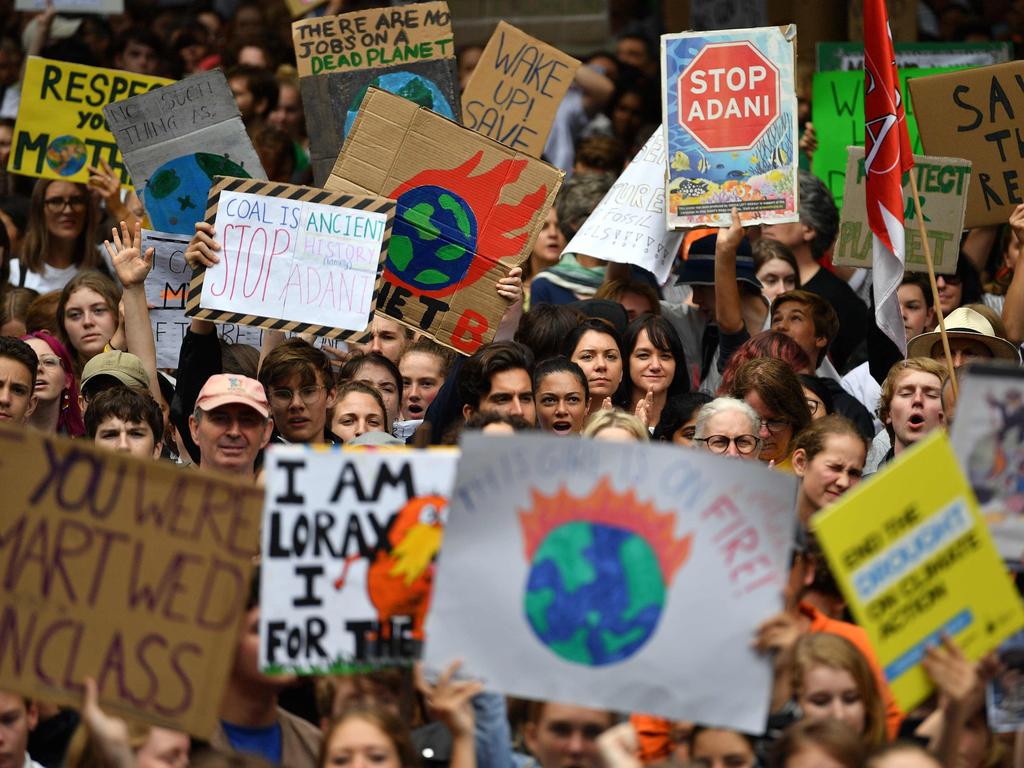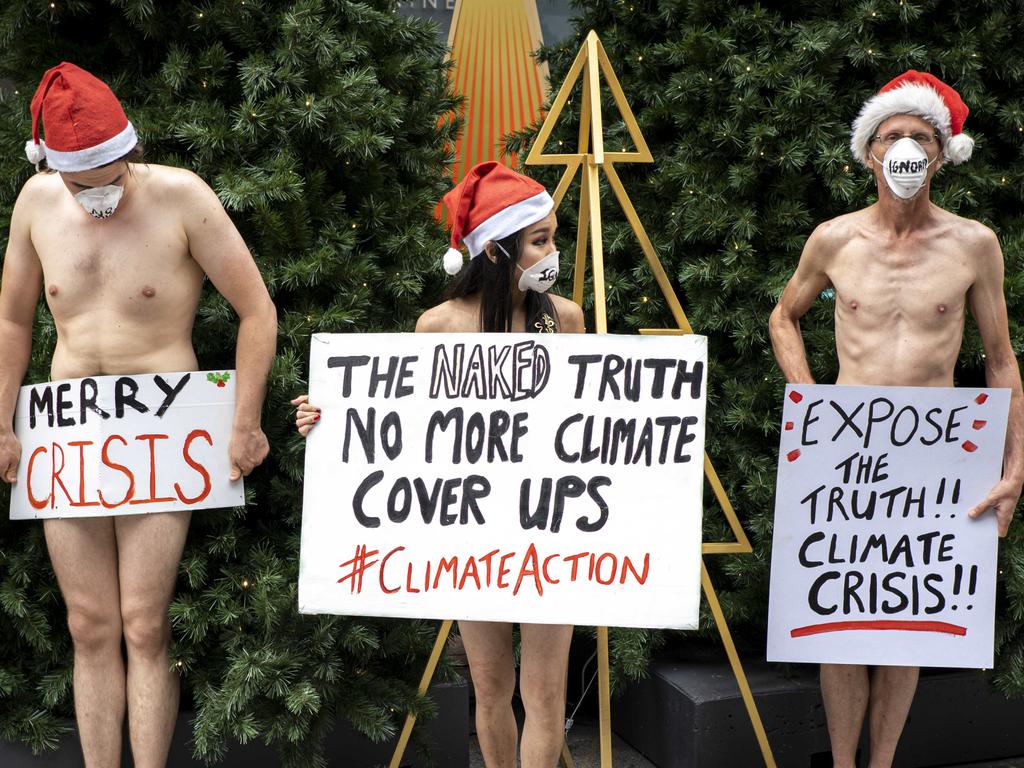We should be proud of our climate change efforts
I represented Australia in Madrid at the climate summit and I was extremely proud to do so. Australia is responsible for only 1.3 per cent of global emissions, so we can’t single-handedly have a meaningful impact without the co-operation of the largest emitters such as China and the US. But we are doing our bit and more.
Australia meets and beats its emission-reductions targets, every time. We beat our first Kyoto targets by 128 million tonnes. We expect to beat our 2020 targets by 411 million tonnes (about 80 per cent of a year’s worth of emissions). Our 2030 Paris target is in line with, or better than, comparable countries such as Canada, New Zealand and Japan. We already have a strong plan to meet and beat our 2030 target down to the last tonne, driven by our $3.5bn Climate Solutions Package.
When you compare Australia’s emission-reduction track record with nations such as Canada and New Zealand — both commodity-exporting developed countries like Australia — we’ve done far better. Since 2005, Australia’s emissions have fallen 12.9 per cent, even while building the biggest liquefied natural gas industry in the world. Canada’s emissions have fallen just 2 per cent and New Zealand’s have risen 4 per cent. Neither country stayed with the second commitment period of the Kyoto Protocol.
In that time, China’s emissions have risen an extraordinary 67 per cent, alongside India rising even more at 77 per cent. So when you hear commentators lecturing us on our performance compared with these countries, just go back to the facts.
Our emissions have fallen in the past year. They are 47 million tonnes lower (on average) than when Labor was last in power, and lower than in each of those Labor years. In 2013, when the Coalition came to power, we were projected to overshoot our 2020 target by 755 million tonnes. Just like turning around Labor’s budget deficit. we have improved our position by more than 1.1 billion tonnes. And we’ve done this while abolishing Labor’s carbon tax.
While our LNG industry has put upward pressure on our emissions (through fugitive emissions and the energy requirements of liquefaction) our LNG exports are dramatically reducing emissions in customer countries such as Japan, South Korea and China — the equivalent of up to 30 per cent of our emissions each year.
Australia has a great story to tell, and our over-delivery should be recognised by the world in assessing and setting future obligations. There is less carbon dioxide in the atmosphere because of the work of Australian households, farmers and businesses. Labor used to recognise our over-delivery but in its desperate attempt to save itself from the Greens, it has given up on this.
Through better land management, our farmers have abated Australia’s emissions more than any other sector without the recognition they deserve. Small businesses and job-creating industries are finding ways to use less energy to do more.
The uptake of renewables in Australia, particularly household solar, is leading the world. This is creating its own challenges but it is simply wrong to say we are moving slowly. One in five Australian homes has solar on the roof while about 25 per cent of our energy in the National Electricity Market comes from renewables, which is why we are focused on balancing this with enough dispatchable 24/7 generation.
The debate in Madrid was not about Australia’s performance. The primary focus was on how to make international carbon markets work. That is a debate that is not directly relevant to Australia because we don’t trade international credits. Countries such as China, India, Brazil and Russia have accumulated large numbers of tradeable credits over a long period. They want to be able to sell them in the future. Some developing countries also want access to a slice of those proceeds. These issues weren’t resolved because Brazil and others refused to compromise on this issue.
International multilateral conferences often disappoint. There are serious limits to pressuring countries into aggressive top-down targets without offering clear pathways to deliver. Many countries understandably see that as negative globalism and a gross infringement on their national sovereignty.
The Paris Agreement is based on bottom-up “nationally determined contributions” and it should stay true to that. The best way to deliver on and strengthen these commitments is through new productive technologies and practices that deliver emission abatement while maintaining or strengthening economic growth.
In most countries it isn’t acceptable to pursue emission reduction policies that add substantially to the cost of living, destroy jobs, reduce incomes and impede growth. The same is true in Australia. That’s why we won’t adopt Labor’s uncosted, reckless, economy-destroying targets that will always result in a tax on energy, whether it is called that or not.
As we look forward, there is enormous potential in established and emerging technologies such as hydrogen, carbon capture and storage, biofuels, lithium production and waste-to- energy. The government is investing in lower-emission technologies with the potential to deliver solutions that strengthen our economy, not weaken it. Just before Christmas we delivered a national hydrogen strategy and a commitment of more than $500m to it. Emerging technologies can also support other countries to reduce their emissions without compromising their economies. Not surprisingly, our work in these areas generated much interest in Madrid.
So next time you hear someone say they’re ashamed to be Australian because of our emissions-reduction performance, point them to the facts.
Australia has strong targets, clear plans, an enviable track record and we are not compromising jobs or the economy to achieve this. That’s something we can all be proud of.
Angus Taylor is the Energy Minister.






Most Australians are proud of their country, and rightly so. Shrill cries that we should be “ashamed to be Australian” do not ring true with the quiet Australians. That won’t stop some commentators telling us that we should feel guilty about our performance on emissions reduction. They are wrong.